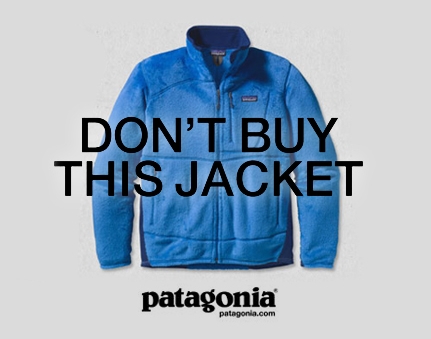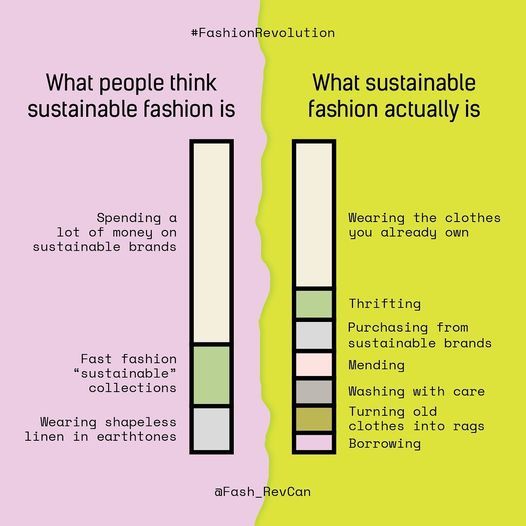There exists a paradox between who we are and what we do when it comes to our awareness about fashion sustainability versus our rate of consumption of fashion, particularly fast fashion. When I started writing this blog, I kicked off by quoting the overwhelming number of negative statistics relating to our obsession with fast fashion, the harm done to our planet and its inhabitants by our over-consumption of clothing and the bleak outlook for the future.
Then I thought, actually, most people who are on social media or watch television have probably seen or heard them many times. We all know the awful truth…the rate at which we are buying and discarding fashion simply is not sustainable and the question is when will the realisation hit home? Will this be the decade when our genuine concern for our planet’s future intervenes and cause us to reconsider our values and the true motivation for our gluttonous consumption of fashion?
Regardless of the magnitude of greenwashing by fast fashion giants and the justification we use to continue buying more and more, pay less and less and still find NOTHING to wear in our closets, the simple fact is that we need to consume less. Every item produced, no matter that it is made from organic cotton or recycled plastic bottles and its makers are paid a decent wage, “, emits several times its weight in greenhouse gases, generates at least another half garment’s worth of scrap, and draws down copious amounts of freshwater now growing scarce everywhere on the planet” (Patagonia)

Patagonia’s ‘Don’t buy this jacket campaign’ during the worlds blackest Friday shopping event, made me switch to only donning Patagonia when heading out to the hiking trails. It was a breath of clean, fresh air during an event that can at best be described as another blatant attempt by the majority of retailers all over the world to pressure us into buying more stuff that we do not need and probably not really want either.
Their bold statement that it is time to address irresponsible consumerism head-on and in order for us “to lighten our environmental footprint, everyone needs to consume less. Businesses need to make fewer things but of higher quality. Customers need to think twice before they buy. Why? Everything we make takes something from the planet we can’t give back… It would be hypocritical for us to work for environmental change without encouraging customers to think before they buy. To reduce environmental damage, we all have to reduce consumption as well as make products in more environmentally sensitive, less harmful ways. It’s not hypocrisy for us to address the need to reduce consumption. On the other hand, it’s folly to assume that a healthy economy can be based on buying and selling more and more things people don’t need – and it’s time for people who believe that’s folly to say so.”
The Closet, our Australian online fashion resale store, sold virtually nothing during the last Black Friday event (even though we pledged that all profits will be donated to the Wilderness Society), we are very proud of our decision not to offer discounts and to make the statement that we do not support mindless spending. Other resellers operating in the same ‘circular fashion’ space made a killing and it left me wondering about the paradox between what we spruik as a fashion resale community and our actions when we encourage consumers to buy because it is cheap.
A 2020 report authored by Nikolas Ronholt and Malthe Overgaard, titled An Exploratory Study: The Fast Fashion Paradox “provides an insight into how fast fashion consumers articulate their attitude towards this type of consumption in a society with an increased focus on sustainability.” This fascinating read will resonate with most consumers as we are all confronted by who we are or would like to be in the face of an overwhelming amount of cheap, irresistible merchandise presented to us each minute of every day. There is this gap a gap between our attitude and our behaviour.
Their findings highlighted that our desire to consume more and less sustainably is motivated by low prices and that we are willing to compromise our attitudes and values simply because something is cheap. Despite the large amount of information seemingly available to us about the impact of our shopping habits on the environment, Ronholt and Malte found that a lack of understanding and knowledge about sustainability also plays a significant role in our purchase decisions. There is an ambiguity related to the meaning of sustainability in fashion which needs to be addressed.
Fashion Revolution’s much quoted illustration draws attention to another paradox, what people think sustainable fashion is and what it actually is.

Readers will probably not be surprised that other findings by this study are that “that social media intensified this type of consumption by encouraging the participants to consume and buy more to keep up with the latest trends” and that “fast fashion consumers felt obliged to continue their fast fashion consumption to conform with social norms.” The ‘’I like it, I buy it’’ mindset indicates a high level of impulse buying without consideration for whether the purchase is really needed and whether the quality is enduring.
The question of whose responsibility it is to take the action required to bring about a change in shopping habits is a difficult one…it appears that neither consumers nor retailers feel incentivised to mend their ways, resulting in a deadlock situation. Companies claim to be responding to what the market wants (demand) whilst consumers claim that companies are responsible as their business models and advertising is the driver for overconsumption.
Buying less, buying well and taking care of what we have bought should be our mantra. Buying some items second hand and reselling items that no longer hold appeal is another way of making a positive contribution to a sustainable fashion industry whilst



